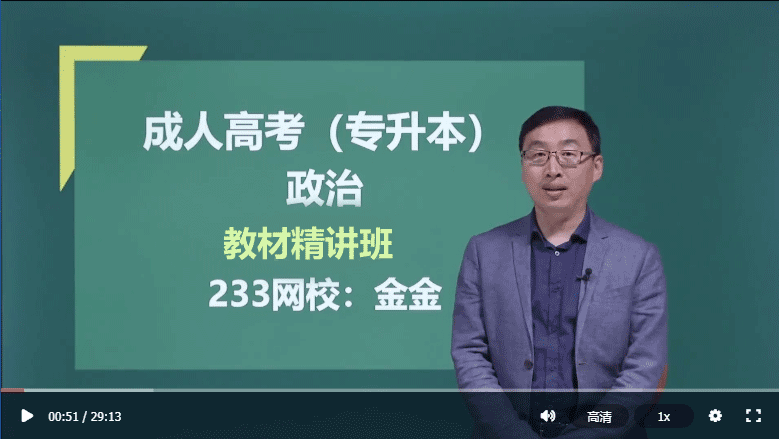Passage Three
Some people do not like anything to be out of place; they are never late for work; they return their books on time to the library; they remember people's birthdays; and they pay their bills as soon as they arrive. Mr. Hill is such a man.
Mr. Hill works in a bank, and lives alone. The only family he has is in the next town: his sister lives there with her husband, and her son, Jack. Mr. Hill does not see his sister, or her family, from one year to the next, but he sends them Christmas cards, and he has not forgotten one of Jack's seventeen birthdays.
Last week Mr. Hill had quite a surprise. He drove home from the bank at the usual time, driving neither too slowly nor too fast; he parked his car where he always parked it, out of the way of other cars, and he went inside to make his evening meal. Just then, there was a knock at the door. He opened the door, to find a policeman standing on the door-step.
"What have I done wrong?" Mr. Hill asked himself. "Have I driven on the wrong side of the road? Has there been some trouble at the bank? Have I forgotten to pay an important bill?"
"Hello, Uncle," said the policeman, "My name is Jack."
44. Mr. Hill __.
A. works in a bank by himself
B. lives in a bank and works by himself
C. lives by himself and works in a bank
D. lives in a bank by himself
参考答案:C
45. Mr. Hill __.
A. hardly sees his sister
B. sees his sister only at Christmas time
C. sees his sister on Jack's birthday
D. always sees his sister
参考答案:A
46. Mr. Hill __.
A. only remembers one of Jack's seventeenth birthdays
B. always sends Jack something on his birthday
C. has forgotten all of Jack's birthdays
D. has forgotten Jack's seventeenth birthday
参考答案:B
47. Last week Mr. Hill
A. was pleasant
B. was quite astonished
C. was quite disappointed
D. was unpleasant
参考答案:B
Passage Four
Years ago, a cigarette commercial asked if you were smoking more, but enjoying it less. That describes the way many of us live today. We are doing more, but enjoying it less. And when that doesn't work, we get the problem. In our extremely hurried search for satisfaction, we try stuffing still more into our days, never realizing that we are taking the wrong approach.
The truth is simple; so simple it is hard to believe. Satisfaction lies with less, not with more. Yet, we pursue the myth that this thing, or that activity, will somehow provide the satisfaction we so desperately seek.
Arthur Lindman, in his very effective book, "The Harried Leisure Class," described the uselessness of pursuing more. His research focused on what people did with their leisure time. He found that as income rose, people bought more things to occupy their leisure time. But, ironically, the more things they bought, the less they valued any one of them. Carried to an extreme, he predicted massive boredom in the midst of tremendous variety. That was more than twenty years ago, and his prediction seems more accurate every year.
Lindman of course, is not the first to discover this. The writer of Ecclesiastes expressed the same thought thousands of years ago. It is better, he wrote, to have less, but enjoy it more.
If you would like to enjoy life more, I challenge you to experiment with me. How could you simplify your life? What could you drop? What could you do without? What could you stop pursuing? What few things could you concentrate on?
The more I learn, the more I realize that fullness of life does not depend on things. The more I give up, the more I seem to gain. But words will never convince you. You must try it for yourself.
48. Arthur Lindman wrote __.
A. a popular novel
B. a research paper
C. Ecclesiastes
D. The Harried Leisure Class
参考答案:D
49. Lindman wrote his book __.
A. ten years ago
B. twenty years ago
C. more than twenty years ago
D. thousands of years ago
参考答案:C
50. We can make our life happier if we __.
A. get rid of useless things
B. buy more things
C. sell things we do not need
D. give up more
参考答案:D
51. The best title for the passage is __.
A. Simplify Your Life
B. Enjoy Your Life
C. Smoking Less
D. Satisfaction
参考答案:A
Passage Five
First, the spotted owl was threatened by logging in the Pacific Northwest. Now it's in danger
from a new enemy, the barred owl. Barred owls have been moving to the Northwest from the eastern part of the United States. Stan Sovern has studied spotted owls. Now when he calls for spotted owls, barred owls are starting to appear. Sovern threw a mouse on the ground, and a barred owl grabbed it.
Scientists have learned that spotted owls start to vanish when barred owls come. Some barred and spotted owls have mated and produced hybrid babies. One spotted owl was killed by a barred owl.
Professor Ned K. Brown of the University of California-Berkeley says, "In some areas of Washington, the barred owls moved into very dense, deep woods. The same kind of woods that arc opened up, or destroyed by logging, that adversely influences the spotted owls."
Ten years have passed since the federal government began protecting the spotted owl. Loggers were forced to limit logging on seven million acres of government land. No one is sure how the arrival of the barred owls will impact laws that protect spotted laws. The barred owls like to live in the deep forests where loggers like to cut down trees. The barred owls will likely keep migrating to the Northwest.
52. Scientists learned about the barred owl migration by __.
A. decoding spotted owl sounds
B. feeding mice to the owls
C. monitoring spotted owl populations
D. researching the Internet
参考答案:C
53. When Stan Sovern calls the spotted owl, __.
A. a mouse appears
B. the spotted owl ignores him
C. no one answers
D. barred owls appear
参考答案:D
54. Logging was greatly reduced __.
A. in the northeasten United States
B. on seven million acres of public land
C. two decades ago
D. to save the barred owls
参考答案:B
55. Barred owls like to live in
A. the northeastern United States
B. Canada
C. deep, dense woods of Washington
D. warm climates
参考答案:C
成考试题:2016成考专升本英语备考试题8套 专升本英语历年真题
考试报名:2016成人高考报名时间/入口 报名流程 招生简章
成人高考培训班:成人高考全科VIP班,权威解密新教材90%考点!

